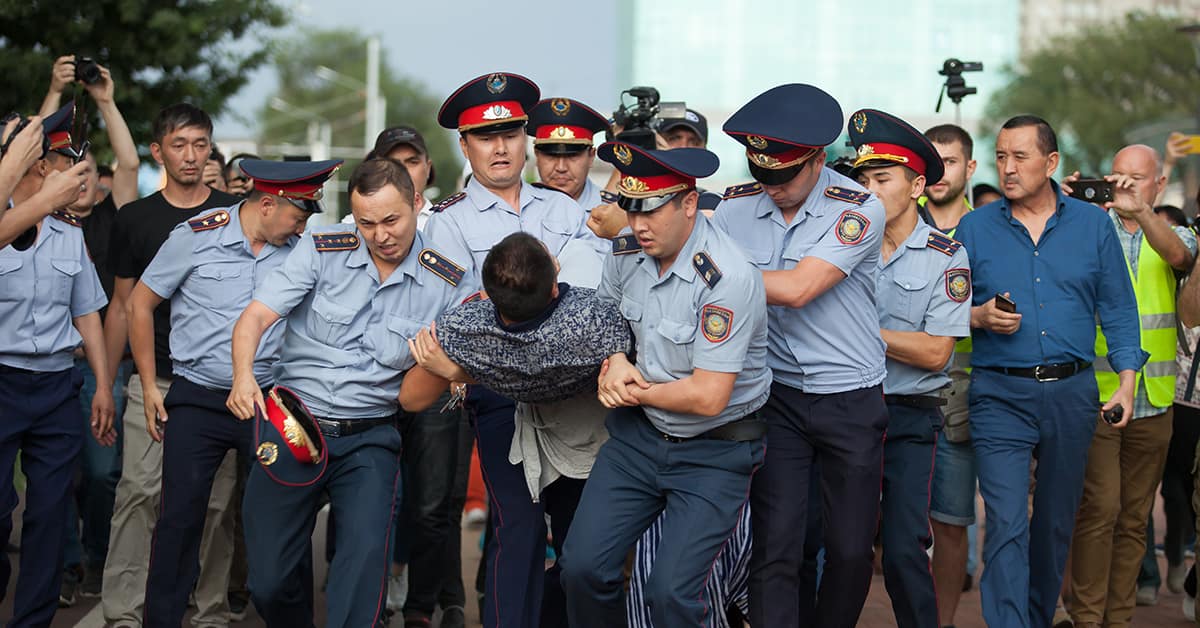Protests over energy prices turned violent and Russian troops intervened to restore the status quo.

Until January 2, Kazakhstan was seen as the predictable Central Asian country: vast, stable and energy-rich, a place where investors could safely do business despite huge wealth inequalities (and the family of former President Nursultan Nazarbayev firmly ensconced atop the pyramid).
That hard-won reputation, along with a balancing act that saw Kazakhstan enjoy good relations with Russia, China and the West, became history as the new year opened. Demonstrations over rising energy prices rapidly turned violent, with what President Kassym-Jomart Tokayev called “bandits” joining the fray. A deteriorating situation led him to declare a state of emergency, issue shoot-to-kill orders and request military support from Russia.
Some, including the president himself, suggested the disturbance was an attempted coup against Tokayev by supporters of the former president; others say Islamist groups were attempting to capitalize on discontent. Regardless, international attention has shifted to Tokayev, who emerged battered but unbeaten.
A technocrat with a diffident manner and a diplomatic career that includes a stint as director general of the UN’s Geneva office, Tokayev, 68, was an unlikely successor to the authoritarian Nazarbayev. Many suspect he was nominated by Nazarbayev back in 2019 for his alleged pliability. Even now—with Nazarbayev and family removed from all positions of power—many argue that his actions are shaped by whatever agreement he had with the former president.
As Kate Mallinson of Chatham House argues, he faces great challenges in simultaneously meeting the demands of both Russian-speaking urban and poor rural Kazakhs, while also reassuring investors who fear the country will draw closer to Russia.
“Western investors will have to worry more about governance, institutions and human rights,” she says, adding that Tokayev will have to grapple with long-term systemic challenges made more urgent by inflation and falling living standards.
She and other observers are underwhelmed by the new prime minister, Alikhan Smailov, and his “lackluster” cabinet, contending that meaningful reform will take time that Kazakhstan doesn’t have. “The system needs to change quickly to allow well-educated, reform-minded executives to enter government,” she adds.



